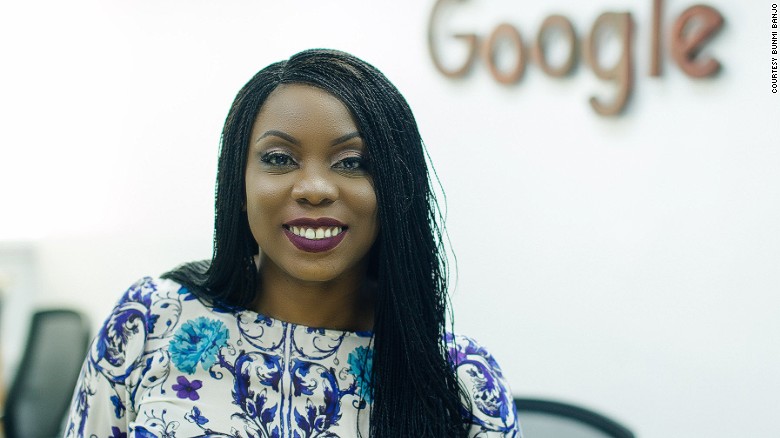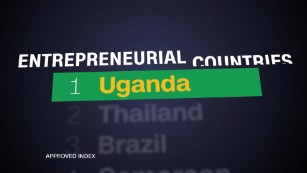Story highlights
- Google has trained over one million youths in Africa on digital skills
- Brand and Reputation Manager, Sub-Saharan Africa, Bunmi Banjo is leading this initiative
 (CNN)Africa's youth population is expected to double to a staggering 830 million by 2050, such rapid growth has led to questions about how the continent will keep up in terms of resources and jobs.
(CNN)Africa's youth population is expected to double to a staggering 830 million by 2050, such rapid growth has led to questions about how the continent will keep up in terms of resources and jobs.
A report by the International Labor Organization (ILO) into World Employment paints a dire picture of the state of youth unemployment and working poverty on the continent.
According to the 2016 report, North Africa has the second highest rate of youth unemployment in the world, while sub-Saharan Africa has the highest rate of working poverty.
So how do you tackle a rapidly growing population burdened with high rates of unemployment?
For Google Brand and Reputation manager Bunmi Banjo it's teaching millions of Africans digital skills, for free.
How to train a million
After a career in banking, Banjo said she saw a need to create economic opportunities for Africans, which led her to Google.
She joined the team in 2012 and under her leadership, the company has trained a million youths in sub-Saharan African in just eleven months.
"We have trained hundreds over the years but we decided that in Africa we really needed skill," Banjo told CNN.
"A lot of them [youth] coming online only know about social and are using the web primarily as a communication tool which is great, but [they are] not realizing that there is a lot more they can do with it especially in Africa where the jobs are not there."
Soon after the Digital Skills for Africa program launched in April last year Banjo found it necessary to raise the bar higher, and the company decided to train one million people.
"You can connect with people, grow your skills and potentially get jobs from across the world," she explained. "This is what we want to make sure large numbers of young people are aware of."
' Not a quick fix'
The training, a free crash course in digital marketing, was delivered in classrooms, online and offline for areas with limited Internet access. Training happens in over 27 countries According to Banjo, the course will give participants a 70% chance of becoming more employable.
"We know people across the region are ingenious, with a little they do a lot and they are thirsty for knowledge," she said.
"All our classes are oversubscribed because they are eager to learn. If they had the right tools and information they will be able to."
While she acknowledges this training is no 'quick fix' for the continent's high unemployment numbers, she stressed the importance of teaching African youth about less traditional paths to job creation.
"A lot of young people will have to figure out how to create income and opportunities for themselves and we feel very strongly that the web is a way to do that."
Getting value out of the web
According to Banjo the program is already yielding positive results.
" 67% of the people we have trained have said they have either gotten a job or they feel better prepared for jobs because of the training," Banjo shared. "If only a few million people are impacted by 67% that is significant."
But Banjo is not stopping there.
"I know a million on its own sounds big but we are talking about a continent that has 500 million people that have the potential to contribute to the economy," she said. "A million doesn't look so big anymore."
Google plan to train at least another million by the end of 2017 and to offer courses in local languages including Hausa and Swahili and Banjo has no plans of slowing down.
"Every aspect of my job is about helping people get value out of the web..." she said.
"Young people [in Africa] are ingenious and all they need is a little support to connect to the tools they need to improve their future."
"It's not every time you get to do something where you get to meet the beneficiaries of the work you do. It's the most rewarding feeling to point at the work you do and the impact it's having at the level of the individual.



No comments:
Post a Comment